Help Isom IGA recover from devasting floods
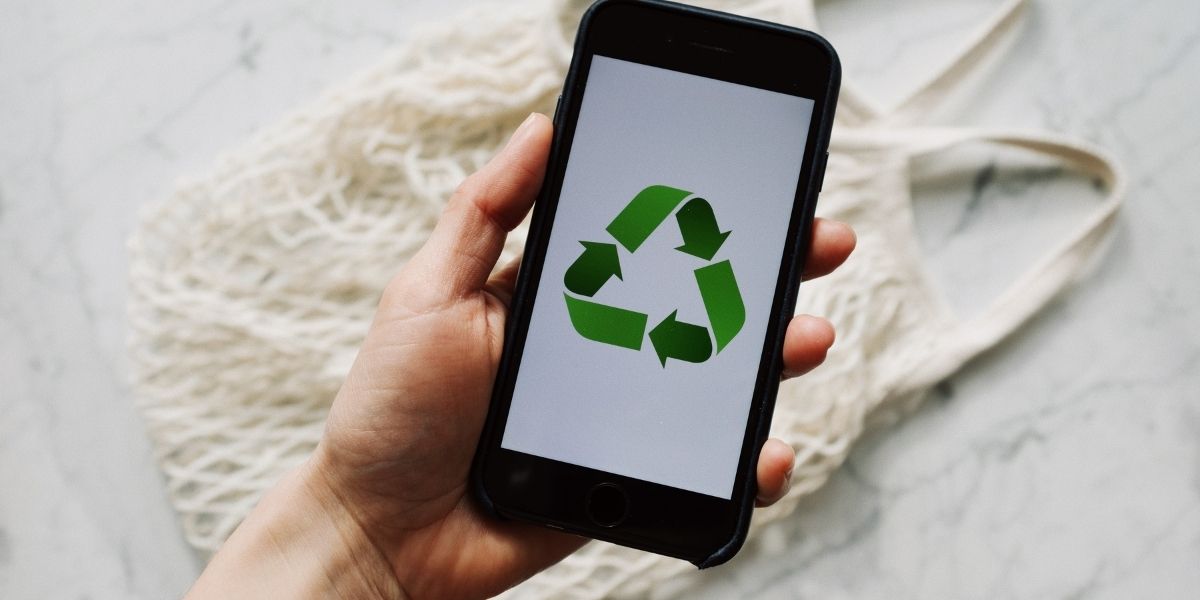
4 min read
First Steps for Independent Retailers to Become More Sustainable
Written by Jessica Vician
Oct 19, 2021
Sustainability is the term du jour, but whatever you call it—environmental responsibility, eco-friendliness, or being green—it's no longer just a cause associated with one political party or generation, nor is it just a cause for individuals to address. Reducing waste, taking an active role to properly dispose of any waste created, and reducing humanity's impact on surrounding ecologies is a crucial part of how a business—and especially a food retailer—operates today. And that has never been more apparent than in the Coca-Cola Retailing Research Council's 2021 Sustainability and Food Retailing report.
According to the report, shoppers are looking to their local supermarket to help them practice greater sustainability. "Supermarkets must position themselves as partners in this fight—as food suppliers and as community members," says IGA CEO John Ross. "As independents, we have a unique opportunity to lead this initiative within our communities. We know our retailers are already hyper-focused on Local Equals Fresh, so this is a logical extension of that commitment to local. By showing shoppers what we're doing in terms of sustainability, we can build shopper loyalty and therefore increase sales."
The report findings echo Ross' confidence in the independent retailer's opportunity: consumers are willing to pay an average of four percent more at a food retailer who supports their community and the environment, and many surveyed said strong environmentally friendly practices could lead to a competitive advantage for grocers, especially as environmental concerns grow.
"Don't leave money on the table or miss out on an opportunity to differentiate yourself by neglecting sustainability," Ross urges. "Walk the walk and show your customers what you're doing to be more sustainable."
So how can IGA retailers take that advice and not only become more sustainable but also tactfully tell shoppers about their efforts? Keep reading for advice, including tips from the report.
Buy Local, Give Local
Many IGA retailers have relationships with local farmers and suppliers to offer fresh produce, meat, baked goods, and more to shoppers, highlighting those products with Local Equals Fresh signage. But what happens to that food when it nears its expiration date? Shoppers would like to see local grocers donating it to local food banks or food-related non-profits in the community.
"Food banks and city missions are easier to track locally and you feel like your money is going right to the cause, and they stay apolitical," Brian, a 59-year-old from Nebraska, told Murphy Research, the market research firm leading the study. "There’s not a big agenda behind it other than providing food and clothes for those who need it."
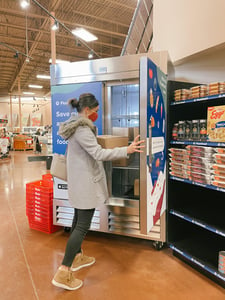 If you're already working with local food banks or non-profits to help reallocate expiring food to those in need, tell your shoppers about it. As noted in the report, "Most consumers are not aware of the good work their local stores are doing to make sure their neighbors don’t go hungry, but it’s important to them." Share a "Did You Know?" message on social media or in the checkout lane and tell shoppers where that food is going. You'll also be helping promote the non-profit, which benefits them even more.
If you're already working with local food banks or non-profits to help reallocate expiring food to those in need, tell your shoppers about it. As noted in the report, "Most consumers are not aware of the good work their local stores are doing to make sure their neighbors don’t go hungry, but it’s important to them." Share a "Did You Know?" message on social media or in the checkout lane and tell shoppers where that food is going. You'll also be helping promote the non-profit, which benefits them even more.
And if you're looking to turn some of that expiring food into profit, look to apps like IGA's Red Oval Partner Flashfood, who connect local shoppers with your store's surplus food as it nears its ‘best by’ date. Shoppers browse the deals on their phone, pay through the Flashfood app and pick it up in your store—this drives shopper traffic, reduces shrink, and improves your bottom line, all while delivering a sustainable alternative to food waste.
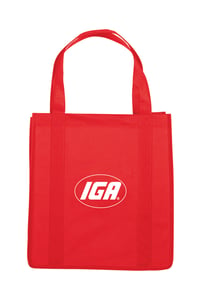
Help Shoppers Be Sustainable
With shoppers wanting their grocer to be a partner in their own individual sustainability efforts, retailers can offer services to help shoppers be more eco-friendly with these options:
- Offer recycling bins on-site, especially for hard-to-recycle items that aren't accepted in home recycling collections, like plastic bags, batteries and light bulbs, and even certain electronics (like cell phones).
- Provide biodegradable bags for produce, offer paper bags at checkout, and sell reusable bags, like IGA grocery totes available from Red Oval Partner Ashgrove Marketing.
- Prioritize non-plastic packaging when possible, like glass, aluminum, or paper.
- Gamify waste reduction: offer points/prizes to shoppers for reducing waste through purchases and recycling.
Limit Food & Energy Waste—And Tell Shoppers About Your Efforts
There are plenty of innovative and cost-cutting tactics retailers can use to reduce food and energy wastes. The first step? Use the resources available through the IGA Coca-Cola Institute—namely, the Top 5 Grocery Energy Savers and Top 10 Waste Reduction Practices classes, created in partnership with the Grocery Stewardship Certification—for the most effective tactics to use right now.
Some of these tactics include:
- Avoid overcrowding the refrigerators to keep vents clear and machines working properly.
- Invest in energy-efficient coolers that extend products' shelf lives.
- Switch to an energy provider who uses green energy like solar and wind.
- Use technology to determine the right amount of food to limit waste, like IGA's partner BRdata's add-on features or apps like Shelf Engine.
- Even buying refurbished saves energy versus buying new. For example, your wholesaler may offer a program to buy refurbished shopping carts. Check with them the next time you need more carts.
And when you make an improvement, like adding a new energy-efficient cooler, tell shoppers about it! Add a small sign/sticker next to the new cooler that says, "This refrigerator helps the environment!" Feel free to explain how—you'll be surprised how excited shoppers get about new technology.
What's the Next Step?
If you're ready to get started on your store's sustainability journey, the Coca-Cola Retailing Research Council created a short quiz to help determine which initiatives will resonate most with your customer base. Find the quiz here.
You May Also Like
These Stories on Sustainability
Oct 28, 2025 5:11:03 PM |
3 min read
Apr 8, 2025 10:22:29 AM |
5 min read
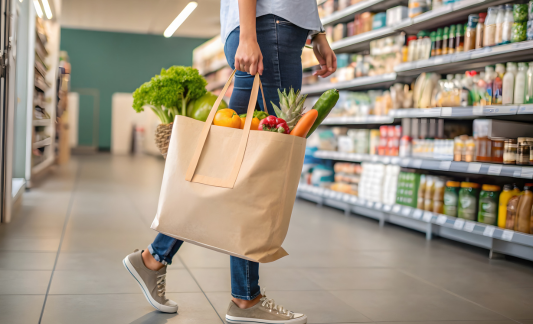
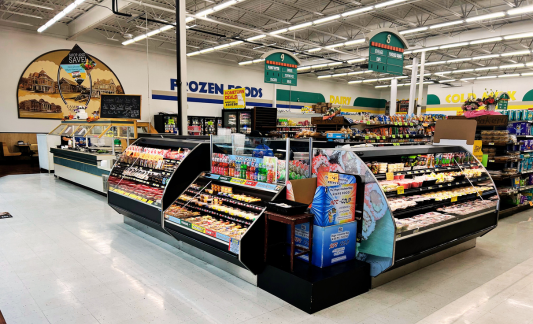
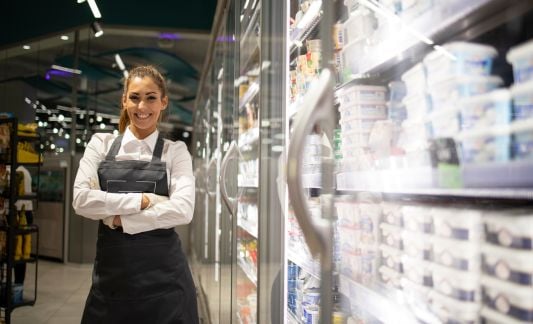
No Comments Yet
Let us know what you think